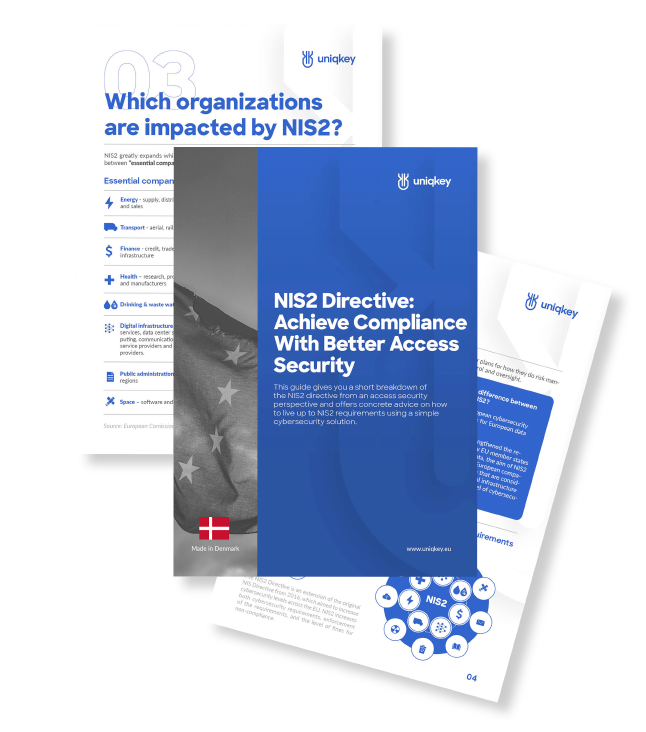IMPORTANT ENTITY
Digital Infrastructure Sector
Learn how the NIS2 directive affects organizations in the digital infrastructure sector.
The Digital Infrastructure Sector
Digital infrastructure is the roads and rails of the modern economy.
As our dependence on digital technologies grow, data centers are becoming the backbone of society – and followingly a high-value target for malicious actors seeking to disrupt and wreak havoc. NIS2 recognizes the implications of this evolution, categorizing operators in the digital infrastructure sector as essential entities.
What’s Included In This Sector?
This sector includes: Telecom, DNS, TLD, data centers, trust services, and cloud services.
Annual Revenue
€85.4B
Projected annual revenue of EU digital infrastructure market.
Data Centers in EU
1335
Number of colocation data centers in Europe.
Key Cybersecurity Challenges
For The Digital Infrastructure Sector
Ransomware Attacks
Ransomware attacks threaten the Digital Infrastructure sector by causing downtime, harm to reputation, difficult recovery, and regulatory risk
Overstretched Personnel
The shortage of cybersecurity professionals and the high cost of cybersecurity measures creates significant barriers to securing digital infrastructure.
Third-party Vendor Security
The digital infrastructure sector relies on third-party vendors for various services, introducing additional risks if those vendors lack adequate security measures
Physical Security
Investment in physical security systems, like cameras and access control, is necessary for protecting digital infrastructure from complex physical attacks.
IoT Security
The number of Internet of Things (IoT) devices used by operators and the vast amounts of data they generate increase the attack surface.
Compliance Challenges
The digital infrastructure sector faces complexity and cost in cybersecurity due to strict regulations such as GDPR and FedRAMP.
The Implications of NIS2 For The Digital Infrastructure Sector
The digital infrastructure sector, which includes technology providers like data centers, content delivery networks, and trust services providers, will be heavily impacted by the NIS2 directive, affecting every operational aspect.

UPGRADES TO physical security measures
The NIS2 Directive recognizes that physical security threats pose a significant risk to organizations in the digital infrastructure sector. As a result, operators in this sector may be required to install security cameras and other similar systems that can help monitor and control physical access to sensitive areas.
Better incident response and recovery planning
Organizations in the digital infrastructure sector must have incident response and recovery plans in place to deal with potential cyber attacks. This involves the identification of personnel to lead the response effort, setting up communication channels for rapid information sharing, and establishing procedures for evidence-gathering for investigations and future risk mitigation.
Heightened regulatory oversight
Operators in the digital infrastructure sector may experience increased regulatory oversight, as EU supervisory authorities take steps to enforce the requirements of the NIS2 directive and hold companies accountable for protecting their critical systems and networks.
IMPACT ON THE DIGITAL INFRASTRUCTURE MARKET
NIS2 is likely to drive an increased demand for innovative cybersecurity solutions as operators in this sector are required to meet a higher set of security standards. This may create a level playing field for all market players, encouraging competition and innovation in the digital infrastructure sector.
Get NIS2 Complaint (Whitepaper):
Time is running out to comply with NIS2 regulations. Starting your compliance journey sooner rather than later is crucial.
A typical NIS2 compliance process, including security assessments, auditing, consulting, and tool implementation, takes approximately 12 months.
For practical advice on how to comply with the requirements, check out our NIS2 white paper.

